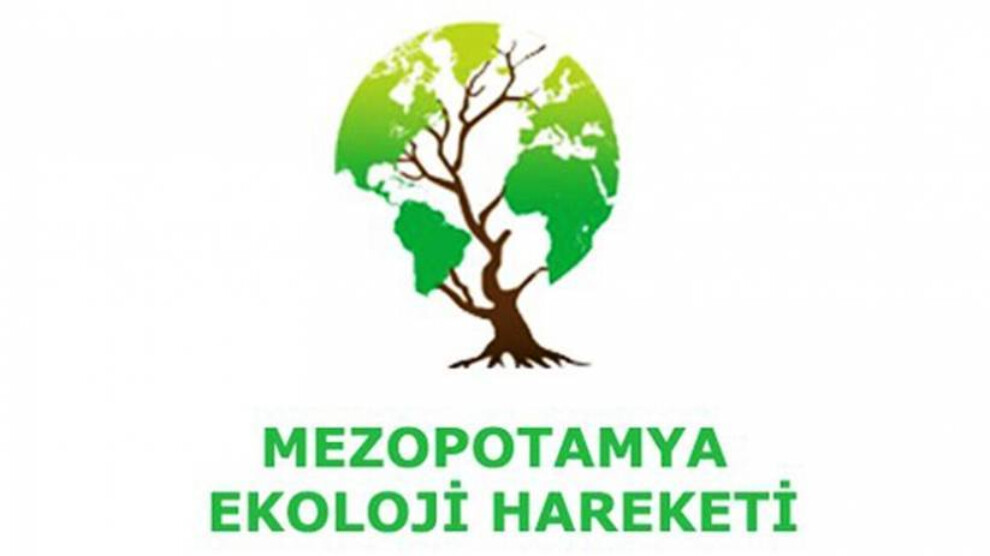Mesopotamia Ecology Movement: Our territory is facing an apocalypse
The Mesopotamia Ecology Movement (MEH), in its statement on deforestation policies, emphasized that "the Mesopotamian territory is facing an apocalypse".
The Mesopotamia Ecology Movement (MEH), in its statement on deforestation policies, emphasized that "the Mesopotamian territory is facing an apocalypse".

The Mesopotamia Ecology Movement issued a written statement on deforestation policies, drawing attention to the ecological massacres in the region and in Turkey.
"Mesopotamia is a place of important milestones, beginning with the search for life and shaping the first forms of social organization, such as the need for food and shelter. Its natural structure, which allows socialization to be realized at the highest level, has made it an important territory where many ethnicities, languages, cultures and religious structures come to life. Capitalist Modernity, on the other hand, and its ideological apparatus, the nation-state, have turned Mesopotamia into a battleground. In Mesopotamia, the environment had turned into a terrain of death and annihilation. Endless conflicts result in ethnic cleansing, rape and systematic torture of hundreds of thousands of people, particularly women and children, as well as irreparable damage and destruction of the entire living space. Mesopotamia is facing an apocalypse.”
'The water ecosystem is being destroyed'
Pointing out that millions of people have lost their lives as a result of the wars created by the nation-state and the imperialist mindset since the Gulf War, the statement noted that “thousands of people are being dragged into an unclear process by waves of immigration that are at a level that will pave the way for tribal migration. As a result of the war's destruction, water resources have been depleted, forests have been burned and robbed, and millions of hectares of agricultural land have become poisoned and barren. Wars over nation-states in the region, where the global capitalist system wields power, devolve into conflicts over geography and natural resources. While Iraq/ Basra's reed beds are destroyed, Iran's Urmia Lake is dried up, and Syria's woods are bombed. The rivers' flow, which has been controlled by the argument that the region's states require electricity and water, have been altered. Valleys, lower-middle belt forest areas, agricultural areas, and settlements were flooded as dams and hydroelectric power plants were built on the Tigris, Euphrates, Aras, and Munzur rivers. On the other hand, the water environment is destroyed as a result of the flow direction being obstructed.”
‘Looting cannot be legitimized’
The following remarks were also made in the statement: “In addition to the devastation and destruction generated by wars, daily political calculations create the illusion that there is a need for fossil fuels. The development of thermal, geothermal, and nuclear power plants continues, despite the good news about natural gas. In Turkey, the looting of nature has intensified, especially as the Covid pandemic process has progressed. Trees are chopped for quarries in İkizdere, while in Cudi, Lice, and Bingöl they are cut for security reasons. Forest areas are granted to buildings, tourists, and energy corporations by amending regulations and legislation, on the grounds of 'public interest.' The provision of transferring olive trees was established in the most recent regulation in the event that mining activities for electricity production coincide with areas designated as olive groves in the land registration. Hundreds of hectares of forest have been designated as forest in the last three months. In this century where the climatic problem has worsened, the destruction of living areas and cultural values, as well as the legitimization of looting through regulations is unacceptable.”
While all of this is going on, the Mesopotamia Ecology Movement is launching a planting campaign across Mesopotamia that will go on until the end of April. “We are appealing to all Mesopotamian peoples, political parties, non-governmental organizations, laborers, women, youth, children, and the general public. We encourage you to join us in our afforestation campaign no matter where you are, from our backyards to our balconies, from our streets to school gardens, and from our villages to the plains and mountains.”